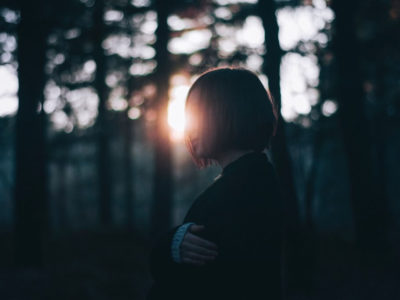Warning: This article contains a story about sexual assault.
I have learned a great deal in my 23 years of life about what it takes to be a woman living on this planet. As a whole, we have learned to accept wrongdoings inflicted upon us. It is a part of our everyday lives. It can be subtle or it can be very evident, but either way it lives with every single woman as we have all experienced what seems to be a never-ending “story game” of sexual assault.
I’ve learned this from trauma relayed to me when doing research for a women’s and gender studies class last year, from having family and friends reveal to me in their darkest hours how they were taken advantage of, from hearing of statistics through social media and from experiencing it first-hand.
One such story that has taught me this lesson comes from one of my good friends.
I spoke with Leslie about her life, living day-to-day as a sexual assault statistic.
The talk is light and airy despite the intensity of the subject we have come to talk about today. I can only think of a few other times we have spoken on such serious topics. The one that stands out now, is when we were visiting my family in Miami last summer.
Lying out by the pool, the sun had just set when Leslie told my sisters and I about the first time she had had sex. He was 18 years old, a senior at her high school, ready to disembark onto the adult world. She was 13 years old, a freshman, her first time exploring life outside of the confines of middle school, and she had said no.
In the present day, I try my best to ease myself into the more personal questions. “Did you tell anyone about it right after it happened?” I asked.
Her tone doesn’t shift. Her demeanor remains comfortable. She has asked herself the very questions she knows are coming, maybe right after, maybe in the years following. Maybe they have haunted her before, repeated in her head over and over. “No,” she said.
Her thoughts have brought her back to a bed. One with simple flowered sheets, her middle school room. A dark presence joins her.
“I was just existing,” she said. Her gaze remains unmoved from a place on the ground in front of us both. “I washed the blood from my sheets and his shirt and he watched football until his mom came to pick him up.”
The toxicity of these moments would later come to define her downfalls within relationships to come. “I was 13 years old and had prematurely begun to form my sexuality with no respect for myself,” she said.
Continuing to attend the same school with her attacker, staying silent for fear of retribution all worked to form her current identity and her relationships. But the hardest part did not come even when she revealed to her friend in later months what had happened and she was reprimanded in return, told that she was not in fact raped but had wanted it.
The hardest part came when a year later the time had come to further explore the physical relationship between her and her first boyfriend.
“I was afraid that if I let him in, in that way, I would never want to have sex again,” she said.
By now, Leslie had moved to a completely different state, sent away by her mom to live with her father. “I feel as if a new location and a good guy truly healed me that year. He knew what had happened to be the year before. And he understood where I stood in my mental state,” she said.
Leslie has followed these guidelines for every lover she has taken since: “I feel like that is such an important part of me, that the person I am with must understand. There may be a day I just flip a switch. In these moments, I don’t want to be touched, I may just want to be alone to cry. And this has nothing to do with this person and everything to do with my past.”
“When do you think the most defining moment came after this trauma?” I asked her.
She takes a sip of her tea and sets it on the ground, her gaze remaining a little past my head, “Your sister.”
I have thought back to that day in Miami a few times before. All of us crying there, together. My sister had sat up when Leslie said something so subtly haunting: “It hurts that that was my first time.” My sister faced her, tears still coming down her cheeks.
“That was not your first time Leslie, You were raped,” my sister said.
I thought it then and I think it still now, how lonely it must be to feel alone in your misery.
I myself was lucky. I revealed to my mother what had happened to me the next day. Her heart-breaking reaction is what has shaped the side effects of my own trauma for the rest of my life. Leslie revealed her trauma to someone she trusted in at the time and was met with accusations and blame.
We all live with our trauma, the difference of those who have been supported and those who have not, may be an important note.
I have come to the indefinite conclusion that every woman has experienced some form of sexual assault. We all know how it feels to be uncomfortable in our own skin, to be granted with the safekeeping of a secret we wish to have no part in.
But life is about perspective. If the rest of the world wants there to be a secret, may we all find comfort in knowing that we carry it together. This is our secret, to do with what we please. And by sharing it together, we have chosen to speak up. We choose resilience.



















